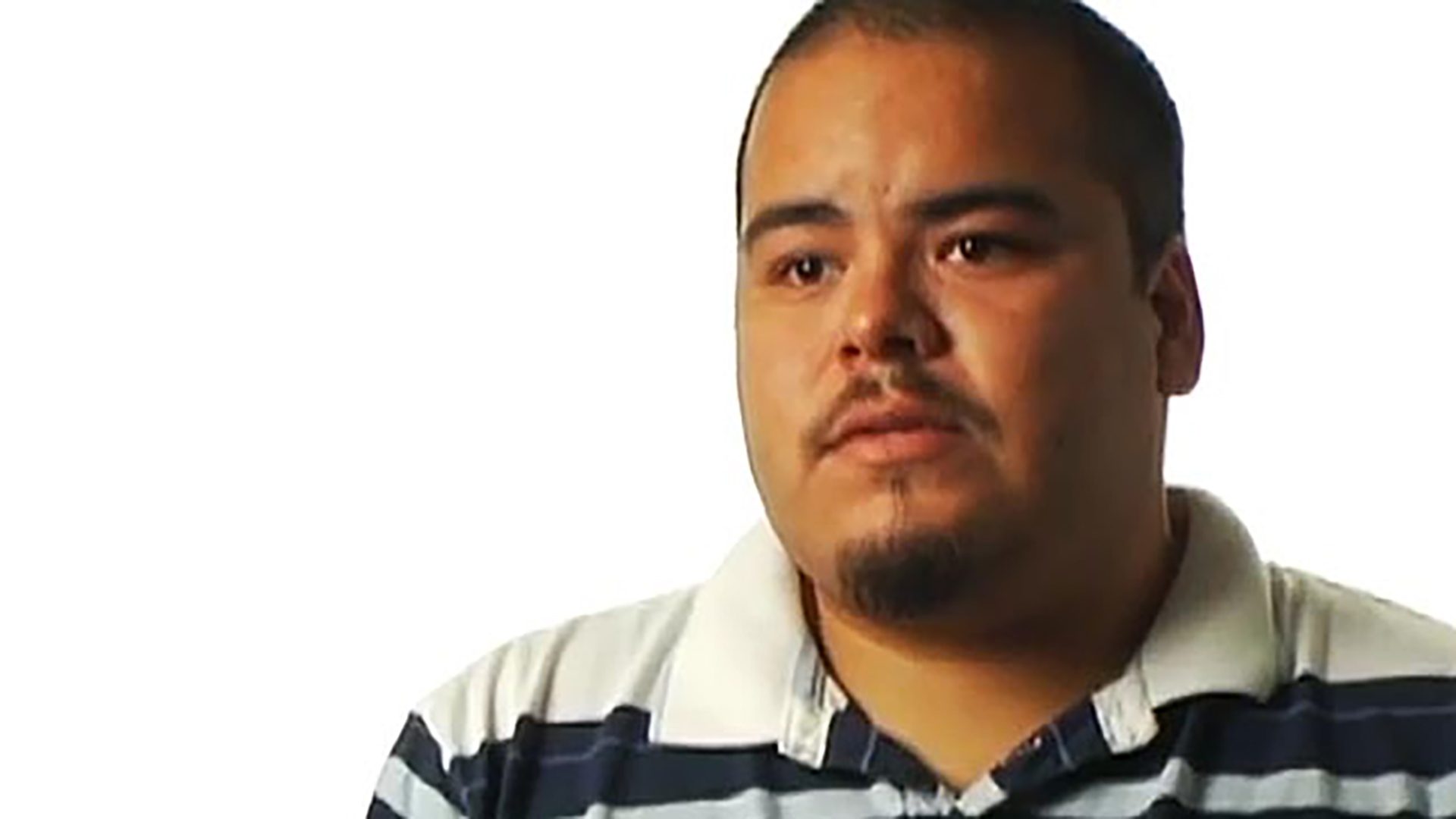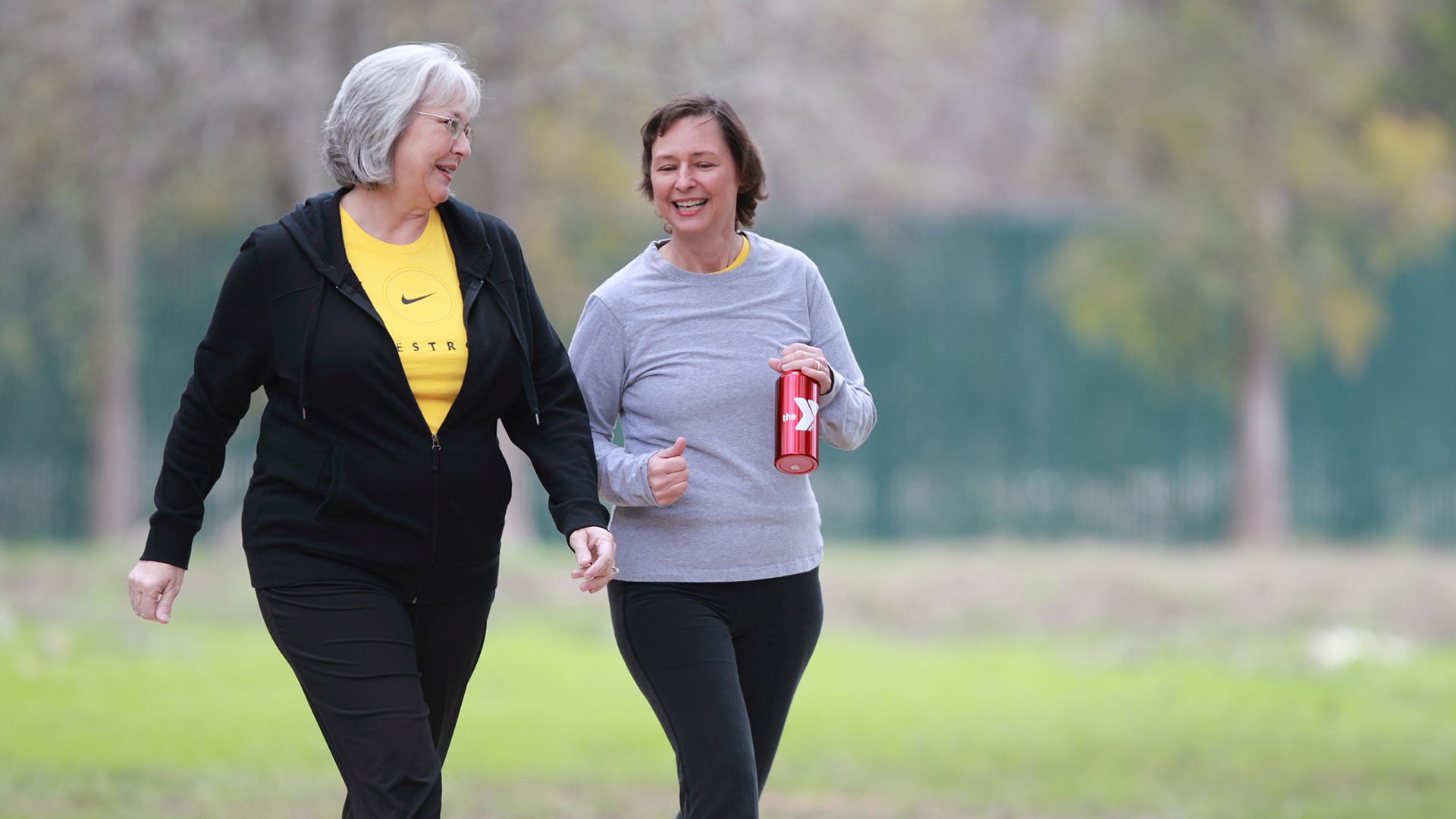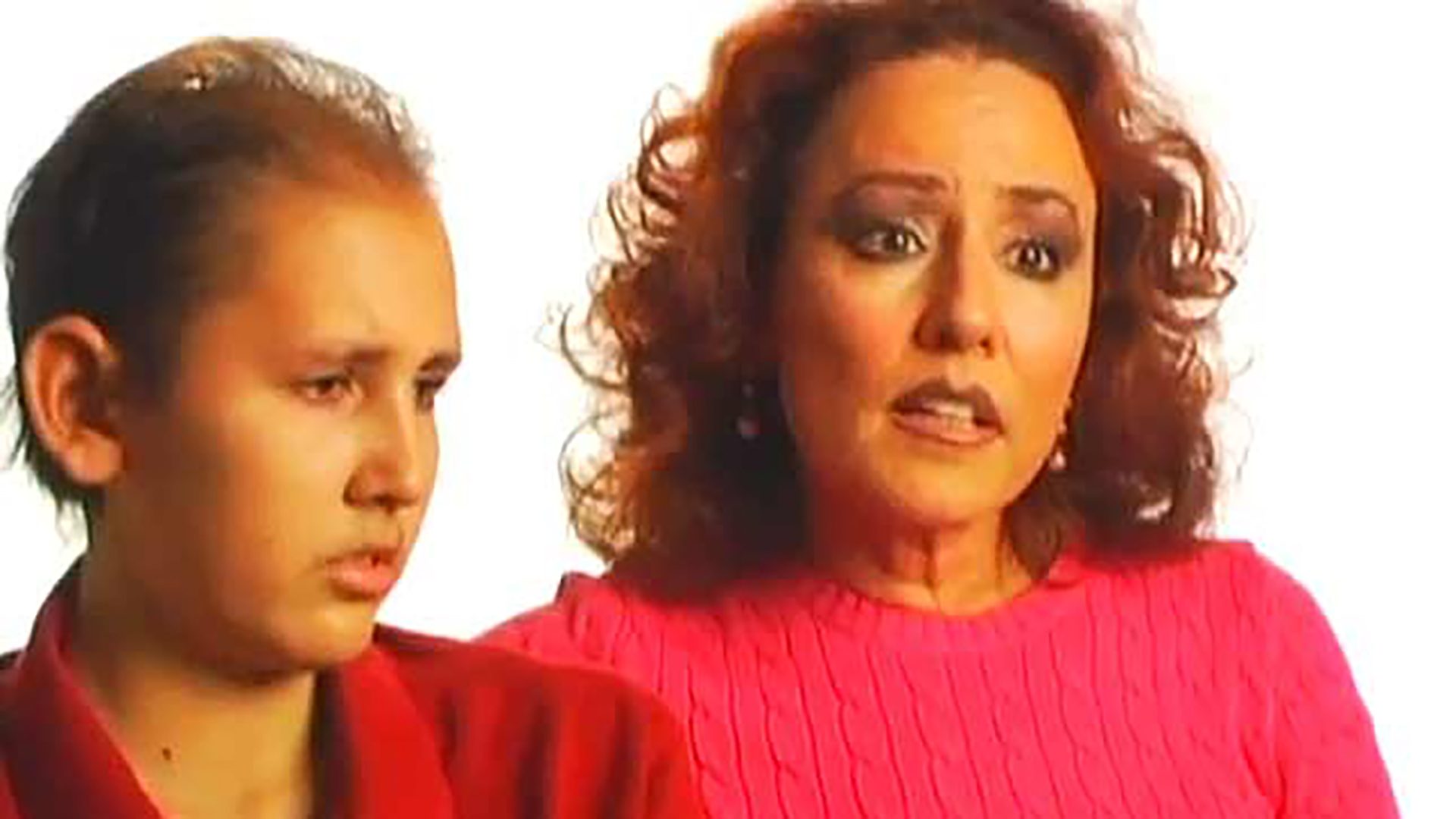Survivor Interview – Hugo G.
Hugo is a spinal cord tumor survivor. He talks about his experience with physical rehabilitation, sadness and depression, and survivor guilt.

I became a cancer survivor when I was diagnosed with cancer in May of 2000.
The first time I was diagnosed, I was 13. I started getting pain in one leg and then it started going into the other leg. My parents took me to get MRIs, and they said that I had nothing wrong with me. The doctor told me that he thought I was making it up. Me and my mother were real upset about that, because I’m over here, can’t walk, and he’s telling me to jump. After that, we went to a neurologist. When he saw my legs, he’s like, “No, there’s something wrong. Take him to emergency.” He got everything going. We ended up going to a children’s hospital in Las Vegas. They found the tumor. They gave me an MRI again to have better pictures. It was not even a day after that, I had my surgery.
I had radiation for six weeks. It’s a rare tumor. It usually starts at the brain and moves down. Mine started at the base of the spine and started moving up. So they were trying everything to make it stop, because they didn’t want it to get to my brain. The second time, I ended up getting radiation for about nine months. They ordered eleven, but the doctor had told me that if I would go any farther, my organs would start to shut down, so they didn’t want that.
They had told me that, with the radiation, I might not grow anymore. I’ve been this height since I was 13. They told me that a lot of patients won’t grow. So I was thinking, “That’s just a lot of patients. I’m different. I’m gonna grow. Watch.” I didn’t grow. I actually shrunk. But after dealing with it for years, it’s no big deal. At least I’m walking, and I’m living and healthy now. I was a big 13-year-old. I used to play football. I was one of the taller kids in class, but as the years went by, I was looking up to other people. It was weird, but after a while, it was no big deal. I’m happy.
When you take radiation, your skin where the radiation is at is really sensitive. You can’t go in the sun, because it can burn your skin more. When I had chemo, I had a fungus grow on my head, because I didn’t have an immune system to fight it off. That was really irritating. I had lots of bladder infections. Chemo kills off the good and the bad cells. I went through periods where I was really sick, and I almost died. I had gotten a blood infection. They don’t want you getting a fever at all. If it’s 100, they want you to go to the emergency room right away. I remember I was in ICU for about three days with a 104 fever. It kept rising. My blood pressure was falling, and they were getting really worried. They didn’t know what the outcome would have been if I had stayed at home for another couple of hours or so. That was real scary.
I had to stay for about a month-and-a-half in a rehab center, trying to get the basic things. They teach you how to do things from sitting down to getting in your bed. You have to lift yourself up and get to your bed, and if you fall, you have to get yourself back up. You’re on the ground, and your bed is three feet high. You have to get up to that bed. It was really hard. I remember they would teach me all sorts of things, from how to get onto a curb in a wheelchair to how to get in cars from a wheelchair.
My mom and dad were really trying to help me. They would get after me, “Don’t get comfortable in that chair. You need to try harder.” I would get in arguments with them, because I didn’t want to. I didn’t want to do anything. I was depressed. Me and my dad got in this big old argument, and he told me, “I want you to get up now!” When I got up with the walker, I just stood there. He told me, “Let go of your walker,” and I let go. He froze. I’ve never seen my dad like that. There’s this big guy, and he starts crying. After that, I was progressing with my walking, but I’d be at one level, and I would stay there for months. People would think, “He’s not gonna get any better.” Then I would jump another level, and I could move my legs. I could actually bear my weight. It was going on and on like that for a long time. After a while, they didn’t know what to expect. They didn’t know if I was gonna stay at that level or not. So all I could do was keep on trying. I can thank my dad, the nurses and all the other people that helped me.
I was angry towards God. You don’t expect something like this to happen to you. It just hits you. It hits a lot of people. Not a lot of people know about all the different cancers that you can have, and it affects everybody. I was angry at God because I was thinking, “Why me? Why my family?” But my mom has always been the one, “You don’t think that way. You just pray.” After a year-and-a-half of being mad, I started praying, and it made me feel better. I would fight with my parents a lot because I was angry and I didn’t want to be in a wheelchair. I would have rather died. That’s what I was thinking. From walking, running, playing sports and everything to being in a wheelchair, you don’t want to be that way. Once you’ve had it, and it’s taken away from you, it hurts.
My mom and dad did want me to go see counselors, but I never wanted to. I’d argue with them because I always thought that I didn’t have to go. It’s hard to have to go to a counselor and hear, “He really does have depression.” For somebody else to say that about you, it’s more hurtful than for you to say. I knew it, but I said, “I’ll deal with it. It’s okay.” A lot of times you break down and cry. I would cry when everybody was in their rooms. I was really hurting inside. While I was depressed, I did try to kill myself. It was that bad. But I just denied it. Once I went through that, my parents were like, “You need to go to a hospital.” I said, “No, I’ll try harder.” I tried, and I prayed and prayed and prayed. I would sit there, cry, pray all night long and fall asleep. One time, it snapped, out of my depression. I said, “I can’t live like this. I’m slowly dying. It’s bad enough that you’re dying from the chemo, but you’re killing yourself with the depression.” After that, I was like, “All I have is faith,” so I just prayed.
Sometimes I feel guilty when I think about it. I had a friend named Christian. I went to a camp for cancer patients. Later on, after the camp, we would still talk on the Internet. I wanted to come and see him. Once a month, all the cancer patients come and see each other this one night. Most of the time, I just wanted to stay home. For some reason, this one time, I wanted to come, but we didn’t get to. About two weeks later, I found out he had passed away. When I heard that, it was like, “What am I to do now?” My friend that I thought was gonna live just passed away. I went to his funeral and saw the pictures of his last days. This kid was always happy. He always smiled. I noticed that. Even when things were going wrong for him, he would always smile. I’d always be grouchy, always grumpy. To see a good person like that pass away, it was really hard. Really hard.
I have had a girlfriend for about two years now. She’s a really good person. She helped me a lot. I think me going through cancer made me think of happier thoughts. Like if something goes wrong, “Okay, well, we can live without that. Just don’t worry about it. Everything’s gonna be okay.” It’s totally different now. At first, it was hard telling her about my cancer story. I’m not hiding anything from her. I’m telling her everything, and it’s better off that way. If you’re in a relationship like that, you should tell them everything and not hide anything, because then you end up hurting the other person, because they don’t know what’s going on.
I live strong by living every day as if it was my last day and thank God that I’m here to wake up in the morning, to go to sleep at night, to do the things I do.
My name is Hugo Gomez, and I’m a four-year myxopapillary ependymoma survivor.

